When Juve, Margie, and their children Zara and Max left their driveway in Vancouver, BC, their travel schedule was all planned out. A spreadsheet was filled with countries, areas to visit, and activities they would do during their overland trip from Canada to Europe. “[In the beginning], we over-planned and overpacked,” Margie says. Half an hour into their epic adventure, the family stopped at Grandma’s place to offload four garbage bags; they donated another two before shipping their 4×4 Sprinter van to the UK. “I didn’t need five pairs of shorts,” Juve laughs.
If there’s one piece of advice the family would give others, it’s to plan and then go with the flow. “When we started our trip, we planned and planned and planned,” says Margie. “Half of those you throw out the door. Things happen. Sometimes you meet people and stay longer. Sometimes you find out from fellow travelers that a spot is nice to visit, even though it’s not on your agenda. Life takes you wherever it goes.” The most challenging part, Juve admits, was deciding to leave and taking the plunge. “Even though we had it all planned out, when we drove down our driveway and knew we weren’t coming back for two years, we had to take a deep breath and keep driving.”
Two years and 28 countries later, the Naings returned to Canada, bringing their experience to Yolo Family Vans, a custom expedition vehicle build service. “We want to help others achieve their travel dreams,” says Juve. I caught up with the family at this year’s BC Overland Rally, eager to learn more about their overland travels in Europe and abroad.
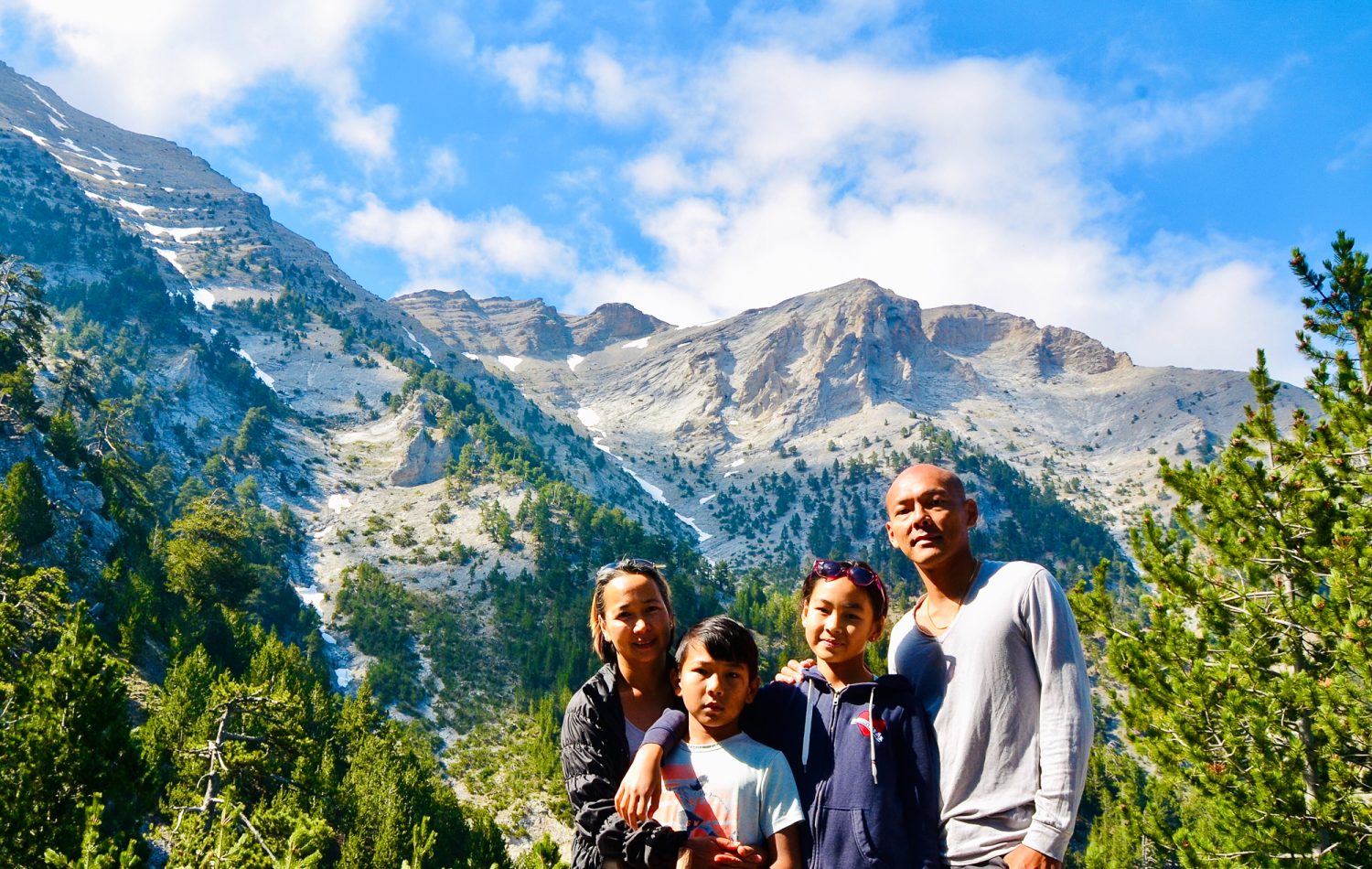
What did your life look like before you left on this trip?
Zara: I was in grade four, and my brother was in grade two.
Juve: I had a nine-to-five engineering job. I managed engineering teams from aerospace, pharmaceutical, and precision mechanics.
Margie: We are busy. We’ve got hectic schedules. I’m project managing custom build homes. We got so busy that we [thought], Is this what we want with our life? We need to take a break and evaluate. We barely had much time with the kids because we were both working full-time. He sees the kids on FaceTime at night during his drive home while they’re having dinner. This is not the ideal family time.
Juve: I think what we did was typical of most families: climbing the ladder, trying to make more money. But as a result, you’re stretched and don’t have time for family anymore. I saw my kids through FaceTime while driving home for an hour, and that was the extent of it, aside from weekends and stuff. That was sort of my breaking point. We needed to do something different than going to work and coming back on repeat.
Was there a ‘straw that broke the camel’s back’, or was it a culmination of everything?
Juve: That was the straw.
Margie: I got sick, I think, because of the stress of shuffling things around, being a parent, being a mom, and building a big project [at work]. This is all good and great, and we’re successful, but if we don’t have time as a family, it’s not successful at all. It doesn’t balance out.
Was the mindset shift difficult for you at first?
Juve: Sort of. I think everyone as a society tries to follow the norm. But at the same time, there are other ways to live, like a lot of overlanders do. There are many YouTube channels about vanlife, and as a result, I thought it was something we could do as a family. We decided to figure out a way to travel—the logistics, the finances, how to teach our kids on the road, stuff like that. There was a trigger point, and then part of the planning stage was how we would execute it and be responsible as well. We couldn’t say, “I quit my job. I’m going to travel the world!” and ignore all the other responsibilities of raising kids properly.
Margie: We transitioned by building a small laneway house so that we could rent our whole house and live mortgage-free while planning and building the van.
Juve: That was the transition point from a “bigger is better” mentality, going from a 4,000-square-foot house to a 1,000-square-foot house.
Margie: When we transitioned from living in a big house to a laneway home, we cut our material stuff in half. Once the van was done, we cut that down again and managed to live with the few boxes we had left. Every square inch was planned in the van because this was going to be our life, our home. And live within your means. [We knew] what we had from our rental money, but could we live [on] it? If you change your lifestyle, it’s doable.
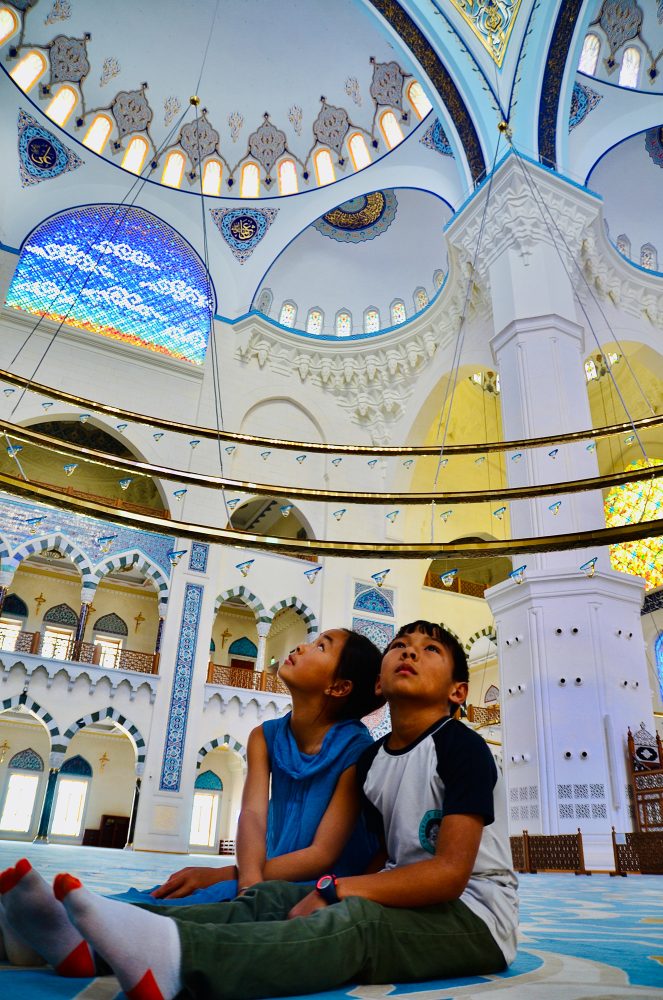
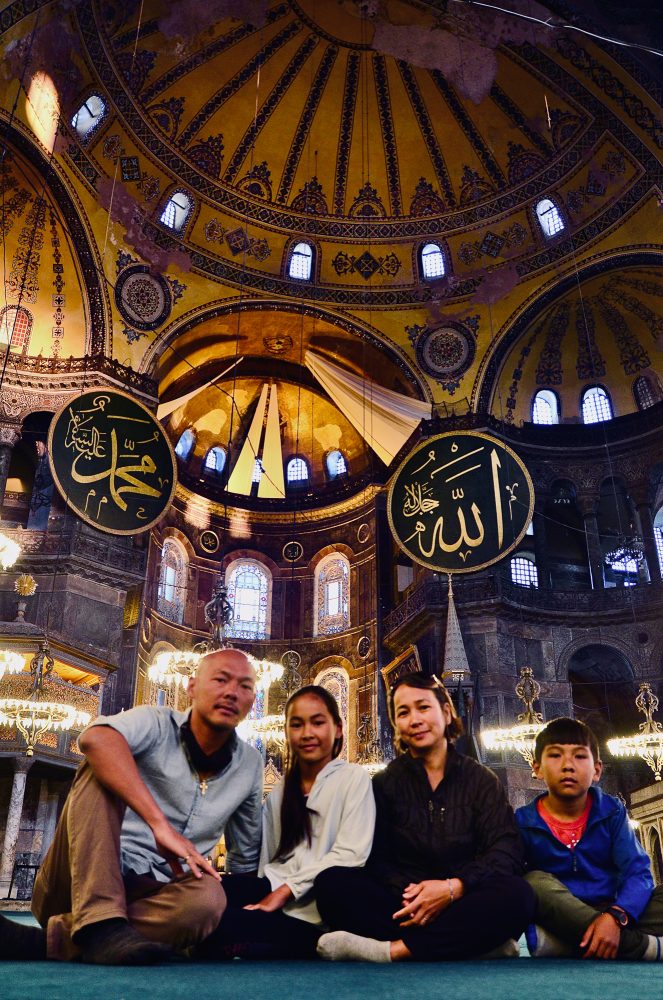
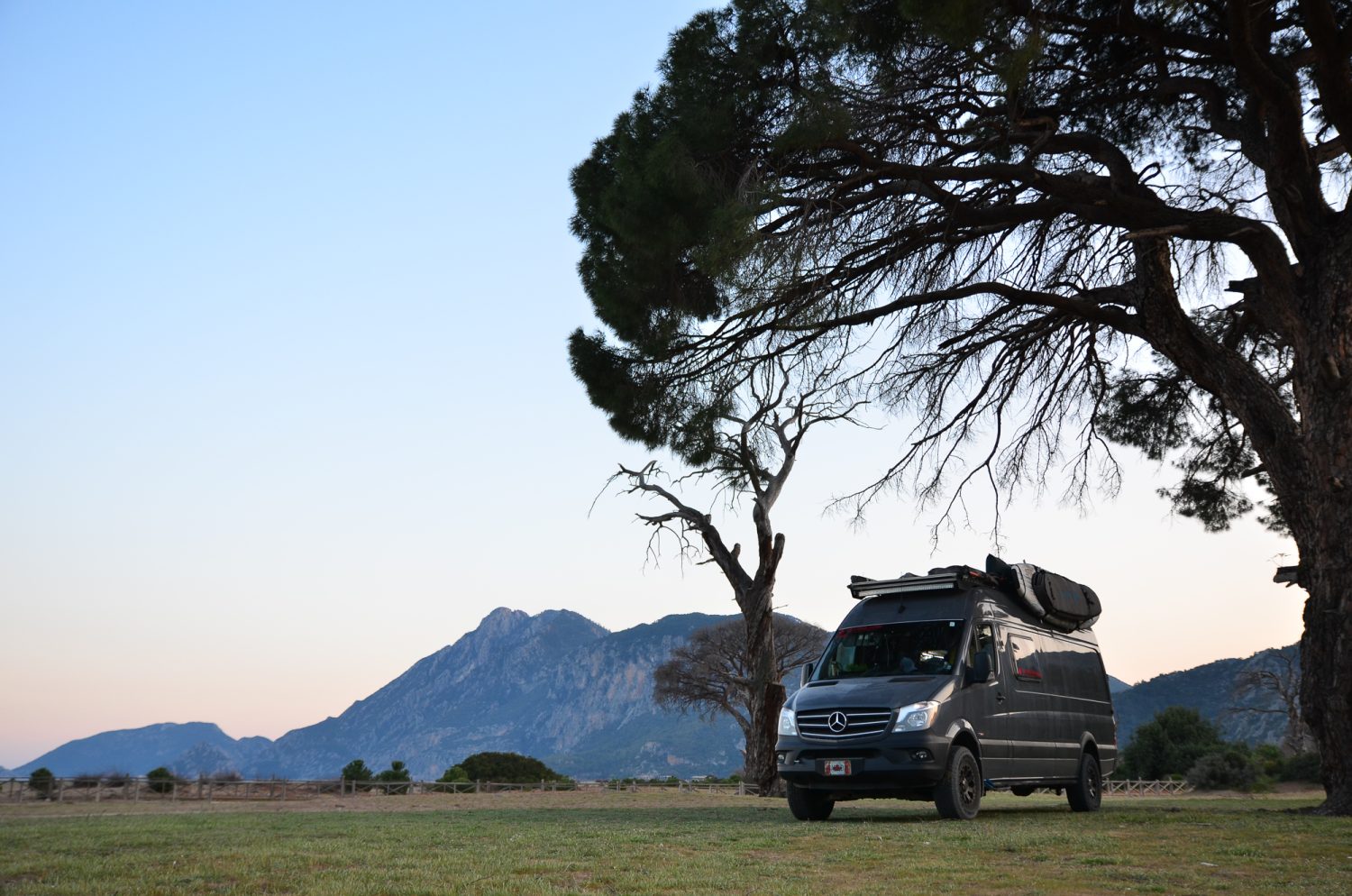
Did you two decide and then tell the kids, or was the decision made as a family?
Margie: We planned it with the kids.
Juve: We had this plan before the kids were born. It was one of those crazy, crazy plans. We were sitting around with friends, probably half drunk, saying, “We should travel the world,” and it’s like, well, that’s never going to happen, but we’re just going to talk about it and [laugh]. But as our life continued, we just said it might be a reality if we worked at it and figured out how to do it. However big the dreams or crazy the ideas are, if you put your mind to it, you can figure it out. It’s just kind of like goal setting. You set that goal and then figure out how to do it. There’s a way.
Margie: Everything we did up to that point took years of planning. When we got married, we thought, “We’re going to go traveling.” Then we had kids, so we had to wait until the youngest one could be independent. We usually do one month of traveling a year, which is not enough. You cannot even absorb a culture in one month. Now, we go into a country, and three months isn’t enough to absorb everything.
Why did you decide to overland by van versus another form of travel?
Juve: We chose the van because we wanted our own space and to take part of our home with us. We knew we didn’t want to go from hotel to hotel, mostly for cost reasons. Airbnb is longer-term, but we didn’t have the flexibility to go to the next town to visit. The van gave us the flexibility to go where we wanted to explore. We chose this 4×4 Sprinter platform to go further than most campers and travelers, down a beaten road to find amazing spots that are more secluded. Those are usually the best ones. If you can get away from the crowds or the masses, you get more alone or quiet time. Not that we don’t want to be sociable, but you have the option.
Zara, how did you feel when you left your home, school, and friends?
Zara: I didn’t know what to expect on the trip, so I wasn’t sure. I did feel nervous and unsure of what to do during our travels. I was sad to leave my friends, but they seemed happy that I was leaving for some reason. I’m sure everyone missed me, and I missed them too. I remember showing them the van, and they’re like, “How are you going to live in this? It’s as big as my bedroom!”
What convinced you that Europe was the best destination for your first international overland trip?
Margie: Our initial plan was to do the Pan-American.
Juve: That’s what most Americans do. You don’t have to cross to another continent [right away]; you just drive south. We changed our minds early in the planning stages when we had kids. The Pan-American is great, as most people say, but it’s mostly developing countries, so maybe Europe is a safer and easier bet for our transition as new vanlifers. Every amenity is still accessible. There are fewer borders to cross. It seems safer. I’m not saying the Pan-American isn’t safe, but [Europe]seems safer.
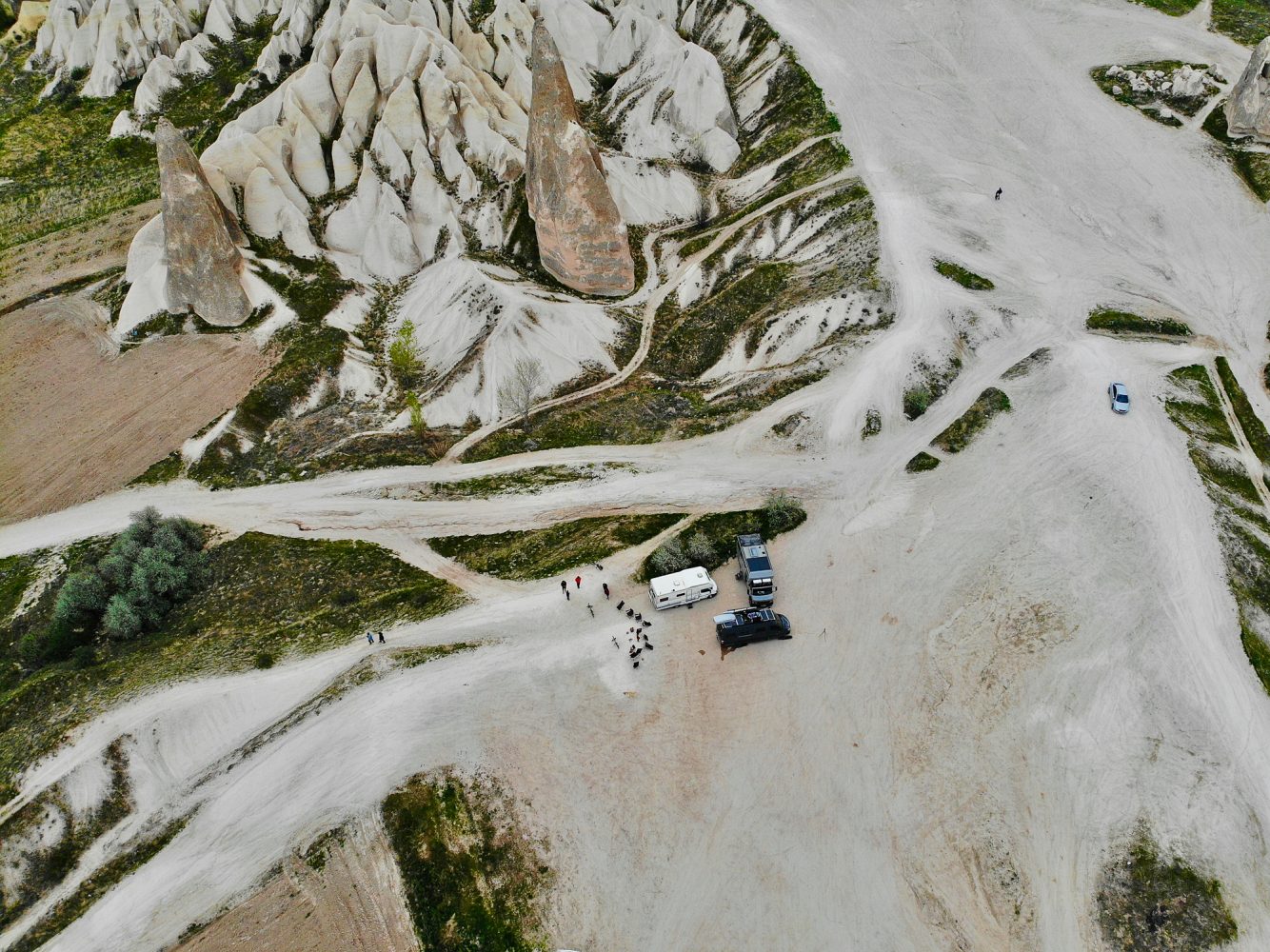
Were there any surprises when you arrived in Europe? You had the mindset that it should be an easy transition, but were there moments where it wasn’t?
Margie: We drove across Canada for three months, which kind of acclimatized the kids.
Juve: I think the surprise for us, or especially for me, was that vanlife was much easier than we thought. I tell this to a lot of people who are thinking about doing it. In the beginning, we have the same concerns that most people have: Is it safe? Where do you park? Do you get robbed? Do you get your car broken into? In the end, the world is pretty safe, and there are a lot of nice people. Even in countries that you think are “terrorist countries” or “terrorist parts” of the world, we find those people are some of the nicest. There are always the 0.0001% that are bad, but for the most part, it was very safe and welcoming wherever we went.
Did you feel like you had to overcome that fear yourself while traveling?
Juve: We did Canada first, didn’t shock ourselves, and shipped the van to another continent with a new language [right away]. We gradually worked our way across Canada, and it changed slowly. By the time we left, we got used to living in a van. Then our first country was England, so you slowly adapt. Then we went from Spain to Morocco and thought, “We’re not in Europe anymore.”
Tell me about your experiences in Morocco.
Zara: It was our first time in Africa, and we didn’t know what to expect. We had the same fearful mindset again, but when we were brave and adventurous enough to meet the people, they were some of the nicest.
Margie: If they are having a picnic and see that we are travelers, [they say], “Oh, come and join us!” Whatever they have at their picnic, whether it’s tea, noodles, or soup, they [shared with] us.
You spent some time in the Balkans as well. What surprised you about that region?
Zara: [People said,] “Don’t go there, there’s a war.” They don’t expect anyone to travel there. Even the people there were like, “Why are you coming here?”
Juve: They don’t see tourists. Because there was a war in the 90s, I thought it was unsafe—but that was 20 years ago. It was a beautiful place. But you still see buildings and apartments with shells and gunshot holes everywhere. An artist covered all the bombshells across the city with red paint, which they call Sarajevo Roses. They’re craters that are left behind to remember what happened.
In those countries that most people think aren’t safe, [the locals] understand that too. They know that most westerners think of their countries that way, so they are happy to correct it. They joke about it and then politely explain they are regular people going about their day. Even though they are on the other side of the world, they have a job, have to feed their family, and raise their kids properly; it’s no different. Except we somehow think a little differently of them.
Margie: The Children’s War Museum. It was one of the kids’ favorite museums because they were touched by the stories of the kids in the war. They appreciate how much freedom they have.
What’s a bit of background for the readers who aren’t familiar with the history of that area?
Zara: There are three sections for the different religions in the city [Bosniaks, Serbs, and Croats], and they fought with each other.
Margie: That was the Bosnian War during the 90s.
Juve: They practically destroyed themselves, and many years later they’ve figured out that they need to co-exist because nobody wants to leave their home. They haven’t solved it but are trying their best.

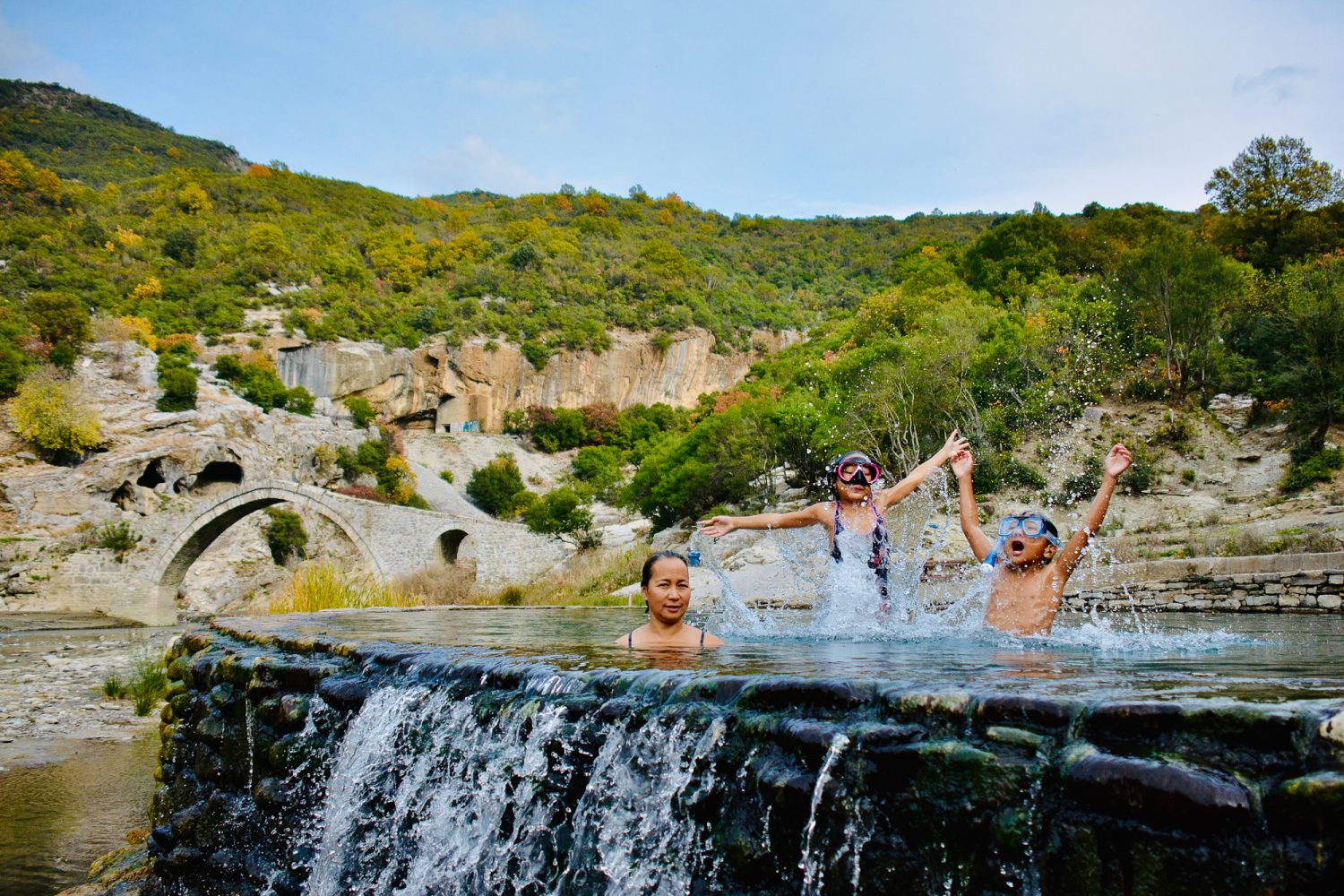
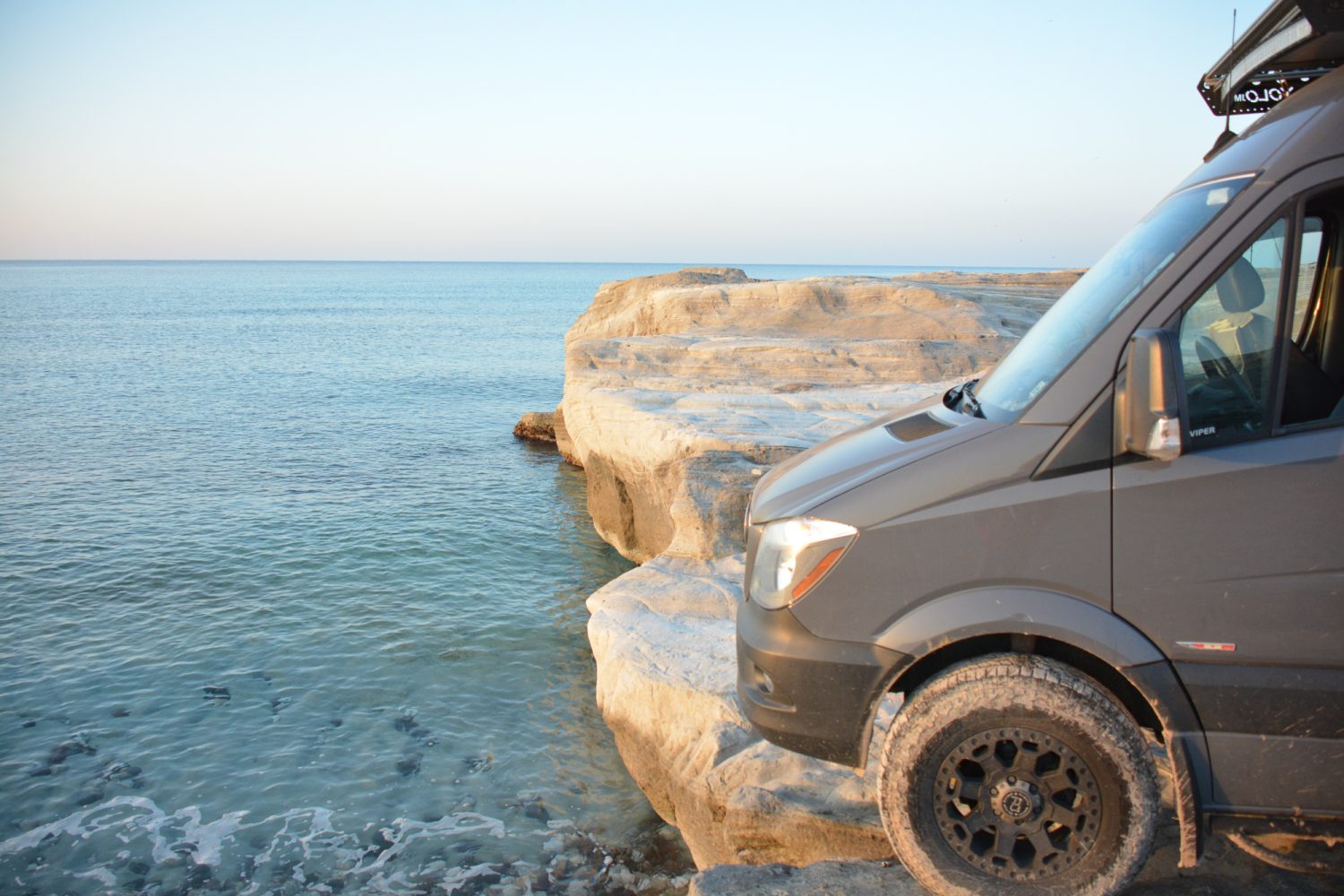
Zara, tell me a little bit about your experience with homeschooling during your travels.
Zara:My brother and I shared a teacher I would call on Zoom once a week. She sent us schoolwork online, and we had textbooks. When she gave us a math assignment, my dad would explain how to do it, and if she gave us a writing assignment, my mom would explain it.
Margie: They encourage their strengths. The teacher asks, “What do you want to be when you grow up?” [Zara] wants to be a writer, so she focuses on what she needs to work on. It doesn’t have to be on the class curriculum.
Zara: We have $500 that goes to school supplies normally, but since we’re in homeschooling, they give it to us directly. So, we spent it on scuba diving because it’s technically Physical Education.
Juve: The first year was surfing and the second was diving lessons. Zara was also filming and editing our YouTube channel videos, so the teacher took those videos as Technology and Fine Arts credits. There are also class funds [for consumables]. Zara and Max wanted to learn cooking (and we were also running out of Canadian maple syrup and wanted marshmallows), so the teacher took the funds and said, “You need to learn how to cook with maple syrup and marshmallows.” The school fund sent them over.
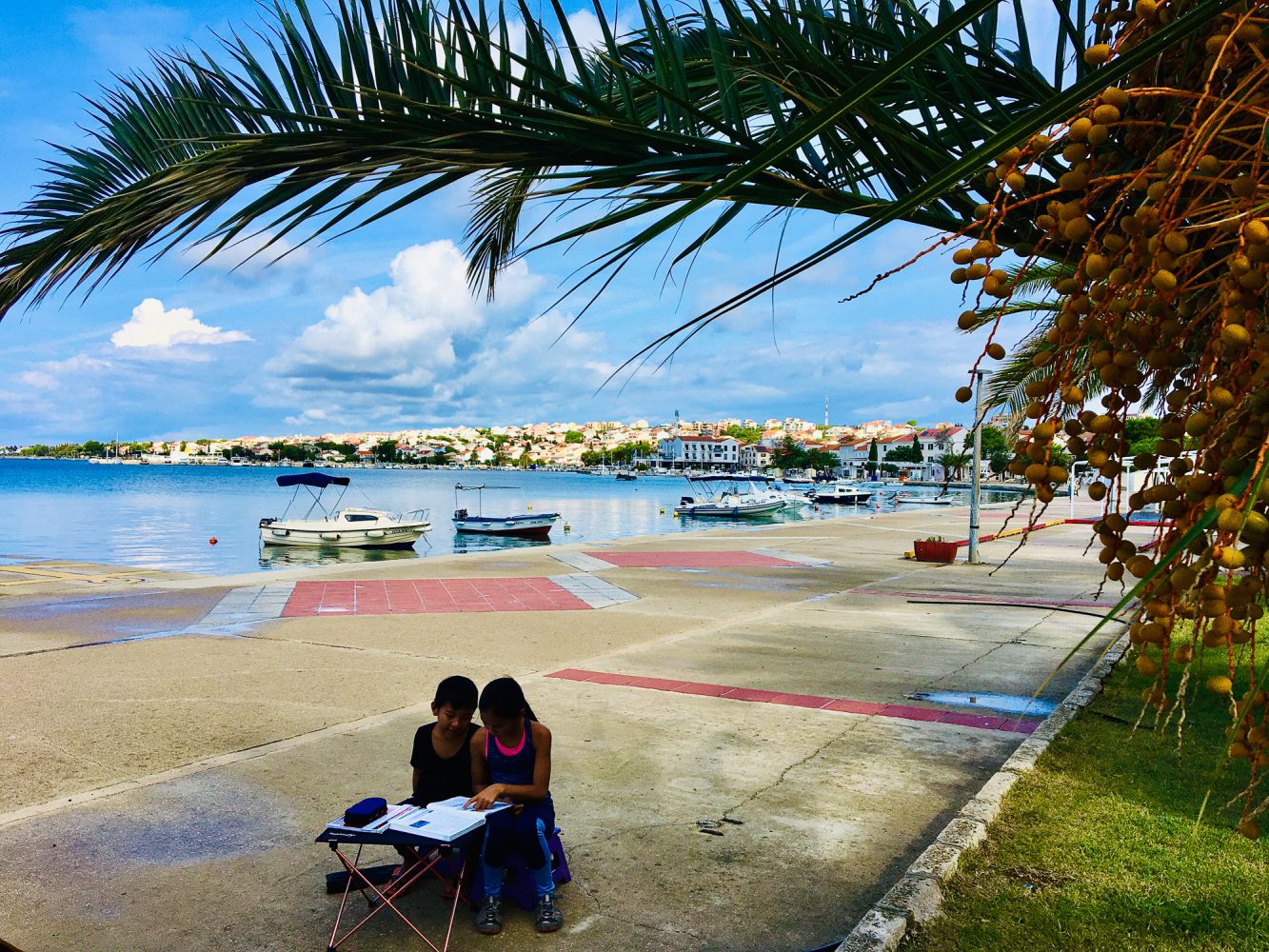
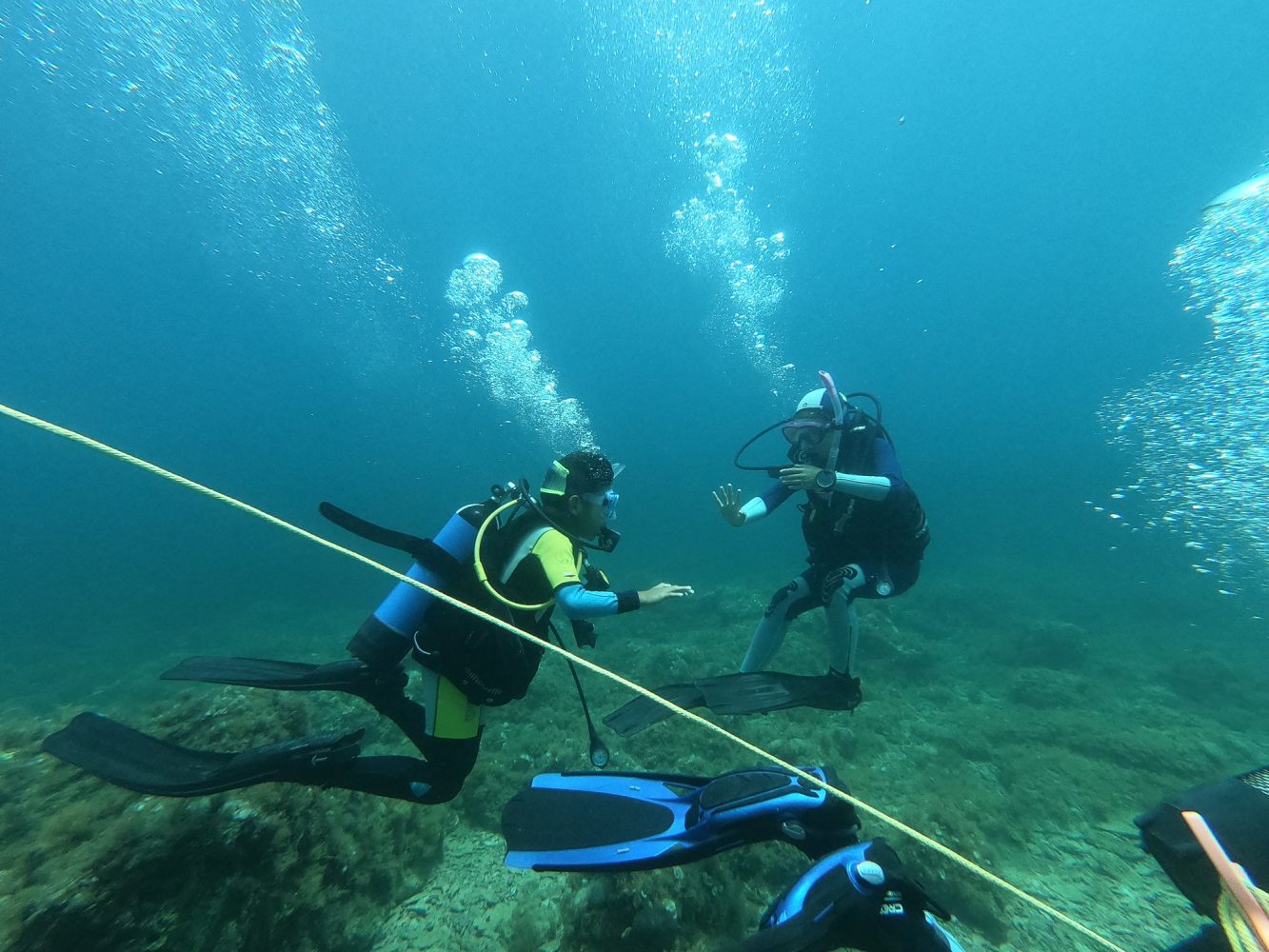
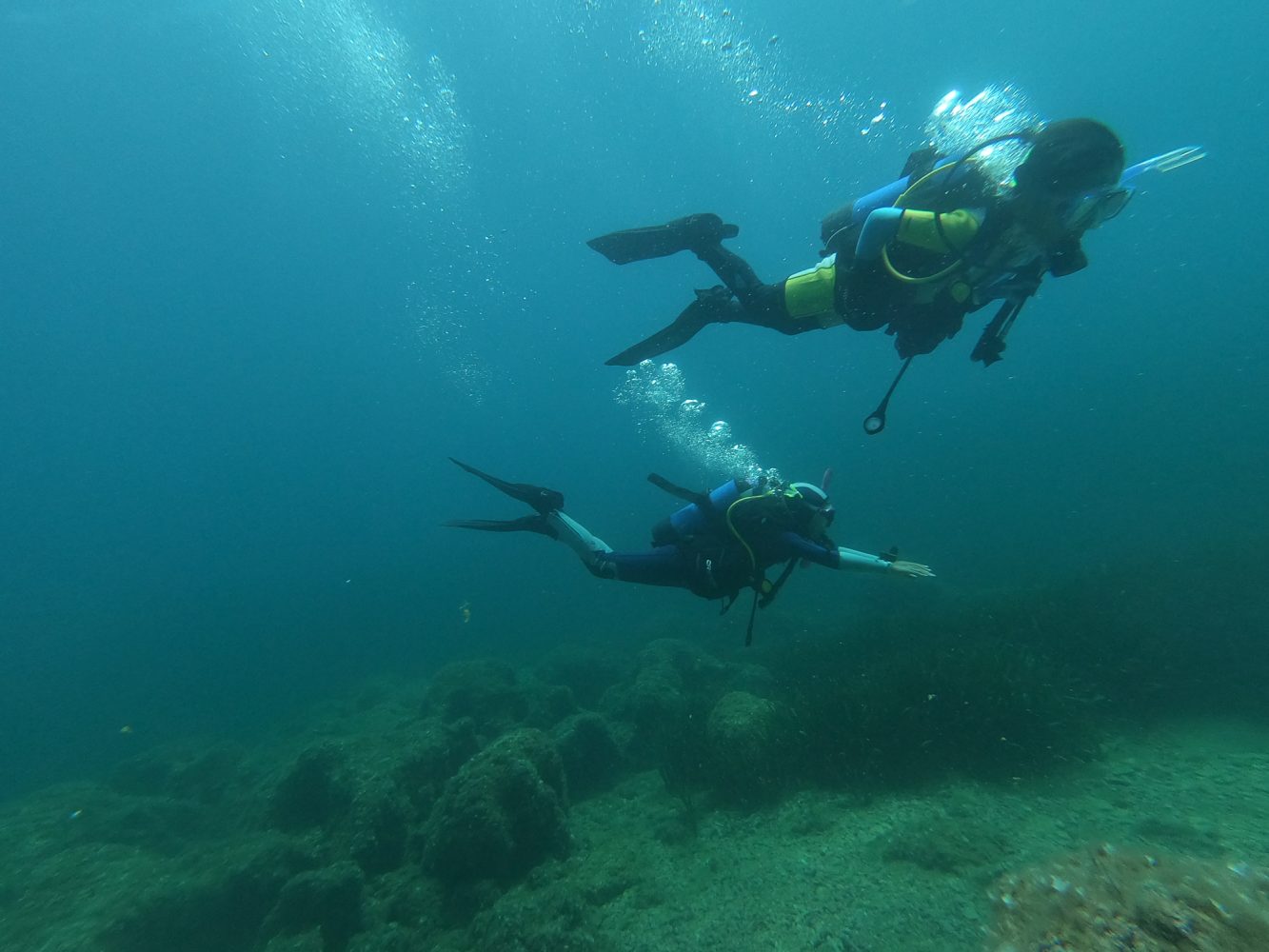
Where can parents go to learn more about homeschooling programs in their area?
Juve: Canadians are very well supported with homeschooling, and most school districts have a program. I would contact your school first. If they have the infrastructure and systems in place, they will point you in the right direction.
Did the online schooling require a consistent internet connection?
Zara: Only for the meetings with the teacher.
Juve: We had the textbooks for the year. If there were handouts, [the teacher] sent us PDFs to do offline. We also carried a little printer. We didn’t need internet unless we were conversing with the teacher once every week or two.

You met other overlanders along the way. How many were traveling as families, and how did that change your experience on the road?
Zara: I think 50% of them were families.
Margie:But because we’re a family, we tend to mingle with families.
Juve: There are common things to do, kids can play together, the parents have a similar story, the same struggles while raising kids, finding campsites. Not that we didn’t meet any couples, they were great; there were just fewer stories to share and things to talk about. After talking to various people (seniors to younger crowds to families), we found out that there are more family travelers because the internet and homeschooling are becoming more available.
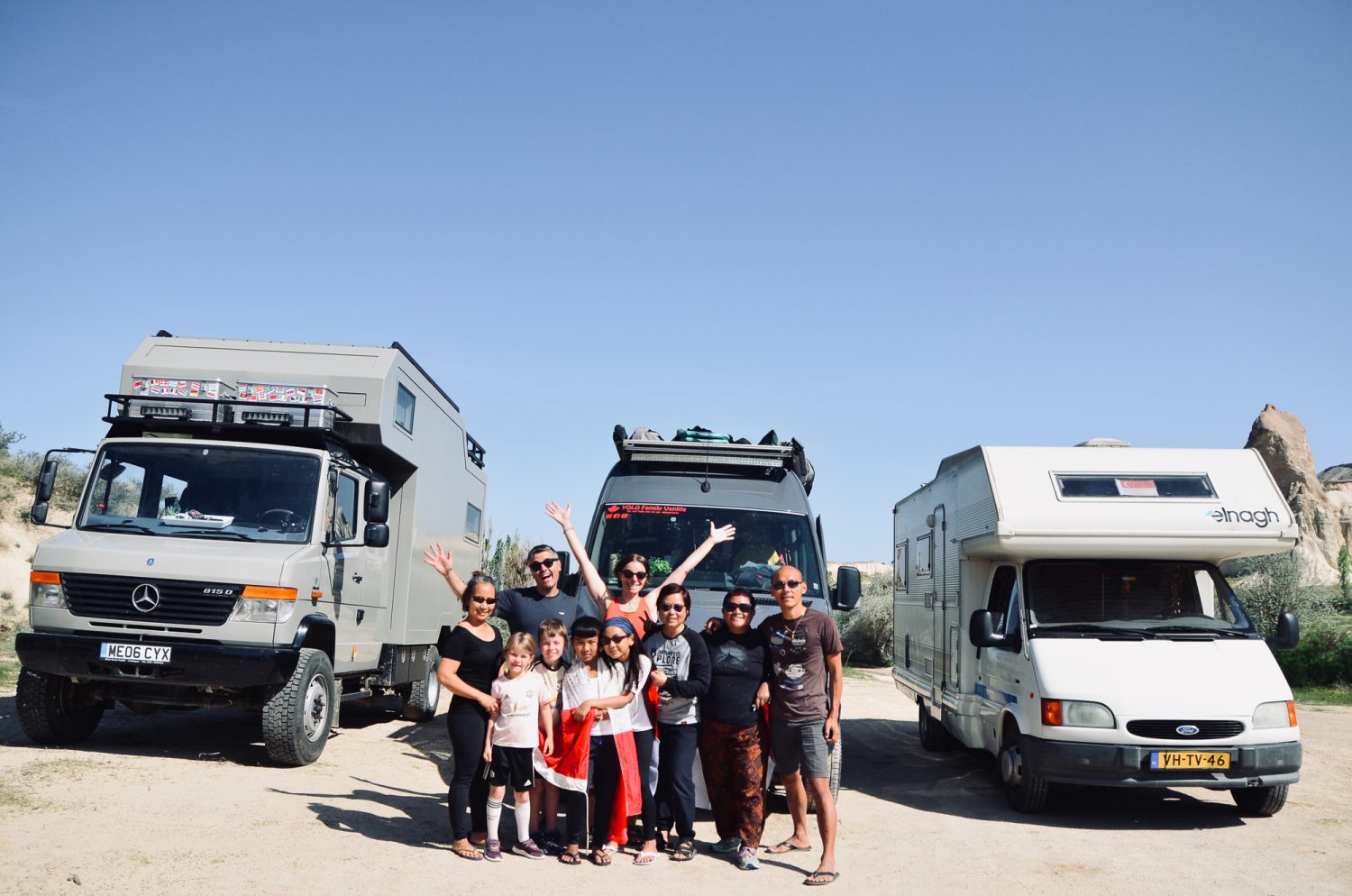
Zara, what did you learn from interacting with kids from all over the world?
Zara: They’re kids, just like my other friends back home. No matter where they come from, they always like to play. But in Morocco, when I wanted to play soccer, sometimes they wouldn’t let me because I’m a girl.
But you ended up playing with the boys and winning, right?
Margie: We kept telling her, “Zara, you can show these boys that girls can play.” We were locked down in a small fishing village, and we told the [local] girls that what we’re doing is the norm halfway around the world. Girls can do sports and ride a bike. We have bicycles in the back of the van, and we told them at the end of the day when the kids were done with their homeschooling, they could come [and play]. Every time the sun was going down, they hovered around the van, waiting to ride. Some of them had never ridden a bike before or had the chance to play soccer.
You’ve spent a lot of time living in a small space with your other family members. Do you have to schedule breaks from each other? Do you ever fight?
Margie: I’m a morning person, so I get “me” time while the kids are still sleeping. I do my yoga and drink tea; that’s my time for an hour before the whole household wakes up. I feel good having that time for myself. If I still need a little break, I go for a walk at the end of the day. It’s the same with the kids; sometimes we send them to play on the beach so we can have our own time, or sometimes it’s girls’ night, and Zara and I let the boys do a movie night.
Juve: It sounds small living in a van, but the reality is we’re usually following a warm climate. If it’s raining or cold, most of us head south, so you have a huge backyard to play with.
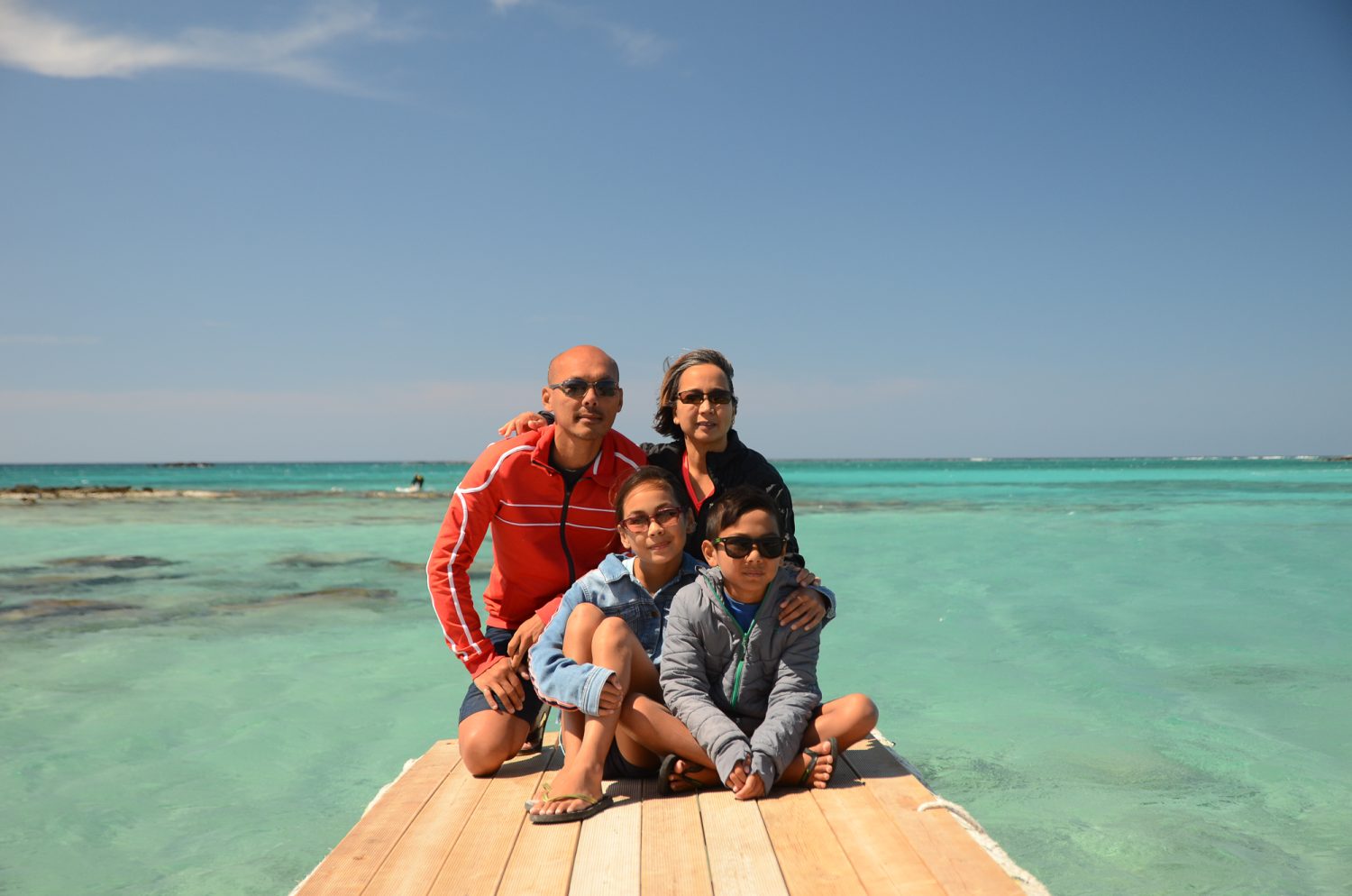

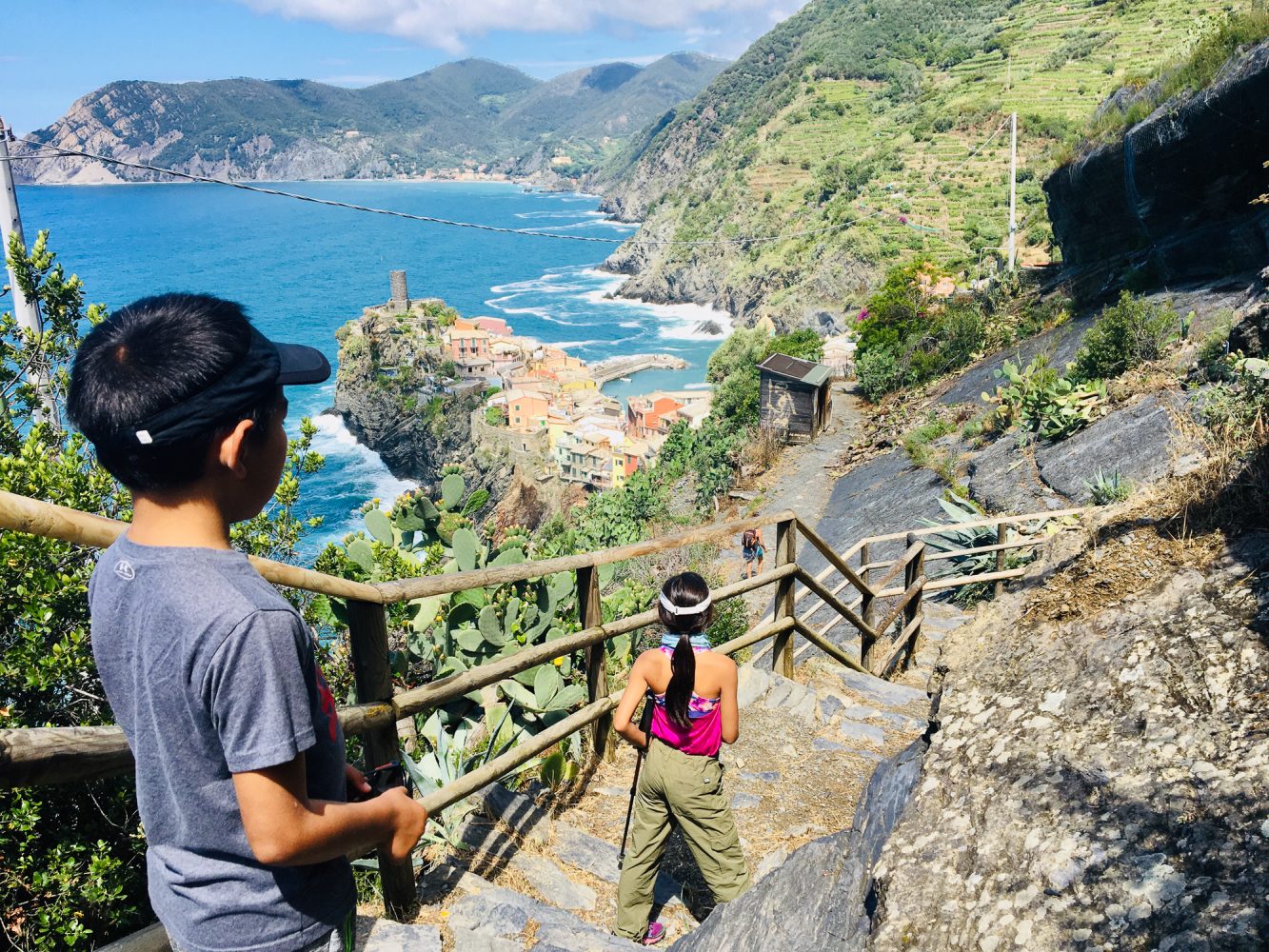
Your vanlife experience sounds like it was very positive overall. Was there anything that sucked?
Margie: Max enjoyed a long, hot shower when we came home. He was shouting, “Look at this water! And all this space!” He did jumping jacks in the shower and enjoyed it. Little things. At Christmastime two years ago, we asked them what they wanted for a Christmas present. [They said,] “We just want to soak in the tub.”
When you returned to Canada, you founded Yolo Vans, a custom van and expedition build service. What was the inspiration behind this?
Margie: The job actually picked us because we didn’t know what kind of jobs we would do when we came back. We connected with our first client through YouTube and social media, and they wanted us to build a van because of our experience.
Juve: With our traveling experience, and my technical background, there were some products we wanted improved or fixed, plus there are others who want to travel the world but don’t have the experience or know-how to build or ship cars. We said [to each other], we might as well use our experience to help others do the same.
To learn more about Juve, Margie, Zara, and Max, visit their website yolofamilyvans.ca, YouTube channel, and Instagram account.
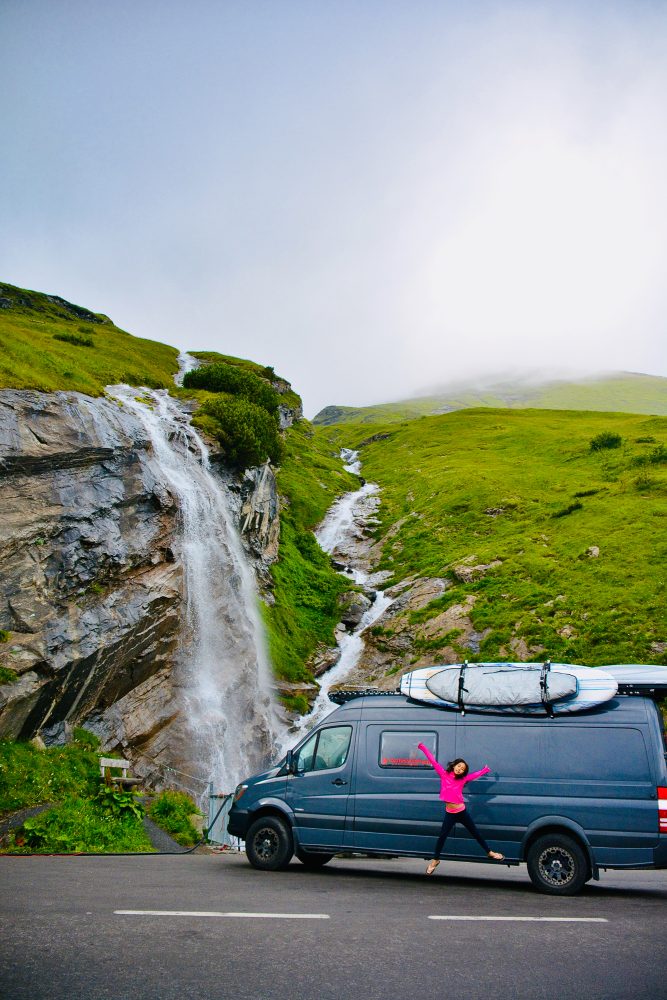

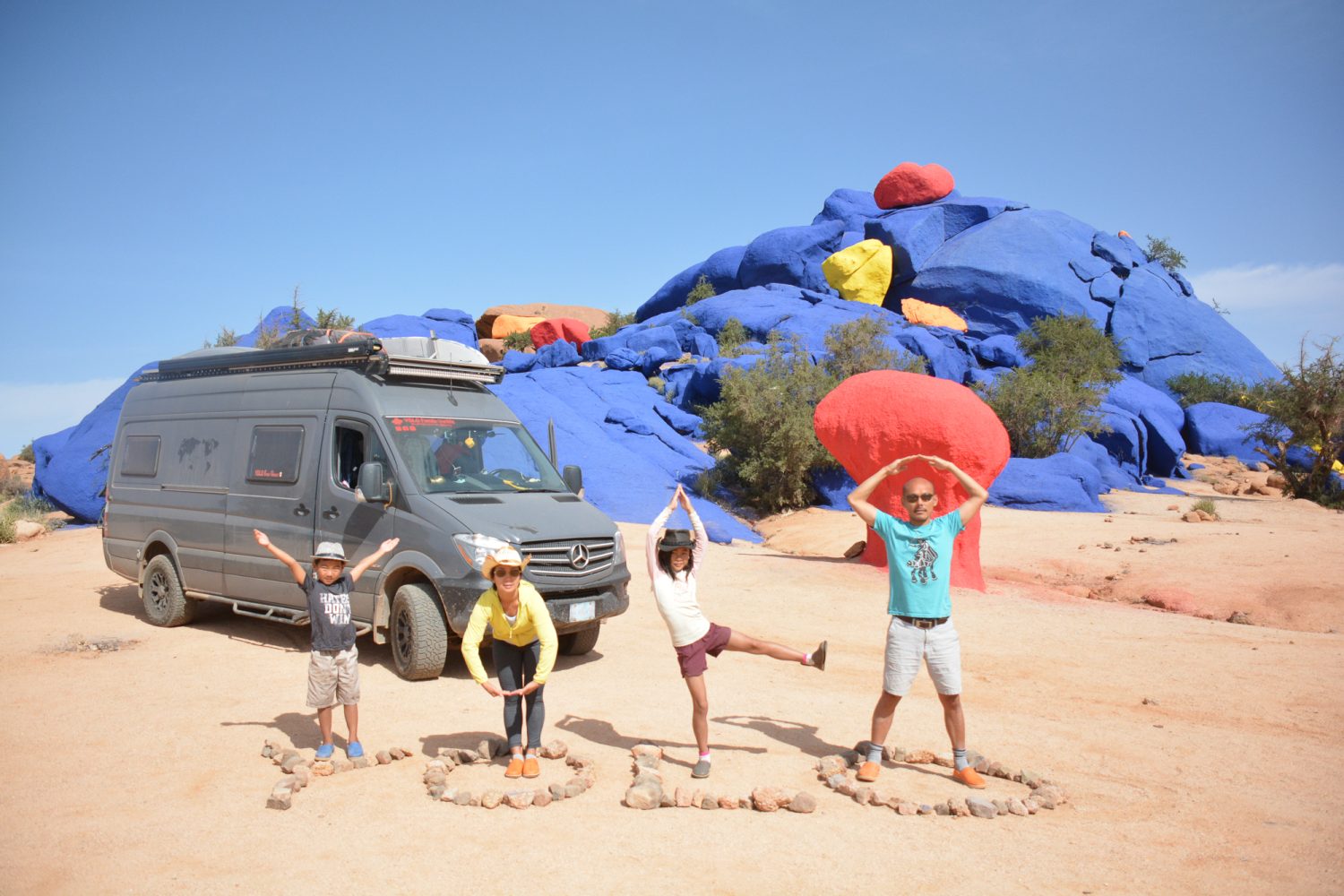
Our No Compromise Clause: We carefully screen all contributors to ensure they are independent and impartial. We never have and never will accept advertorial, and we do not allow advertising to influence our product or destination reviews.
Read more: Zapp Family Completes 22 Years of Worldwide Travel in 1928 Graham Paige


